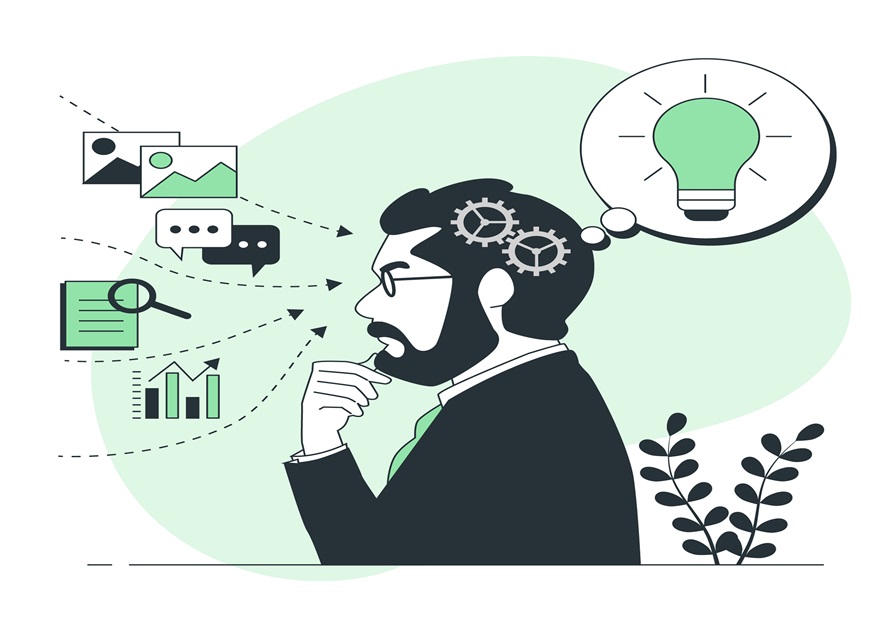Defining Entrepreneurship
At its core, entrepreneurship is the act of identifying a problem, creating a solution, and organizing resources to build a business that can address that problem in a profitable and sustainable way. It is about spotting opportunities, taking risks, and innovating to fill gaps in markets. Entrepreneurs are visionaries and change-makers—individuals who take initiative, identify trends, and build solutions that improve lives, address market inefficiencies, or disrupt traditional industries.
Entrepreneurship isn’t limited to starting businesses. It can manifest in various ways, such as creating social enterprises, innovating within corporations (intrapreneurship), or identifying community-based solutions to pressing societal challenges. Entrepreneurs are vital drivers of innovation, competition, and productivity, and they play a major role in economic development by creating jobs, contributing to technological advancements, and adapting to changing consumer needs.
The journey of entrepreneurship requires several key traits and skills, such as:
- Risk-taking: Entrepreneurs must be willing to invest time, money, and resources into uncertain ventures.
- Innovation: Creativity and innovation are the foundation of many entrepreneurial endeavors.
- Vision: A clear sense of direction and the ability to set long-term goals is essential.
- Adaptability: Market conditions change constantly, and successful entrepreneurs pivot when necessary.
- Resilience: Entrepreneurship involves setbacks, and resilience is the ability to learn, recover, and persevere.
Entrepreneurship is no longer just about traditional business models. It includes technological innovation, sustainability, social enterprise, and digital transformation. Entrepreneurs now focus on solving problems like climate change, social inequality, and technological disruptions, demonstrating the breadth and depth of modern entrepreneurship.
Understanding Startups
While entrepreneurship is a broad concept, startups represent one of its most recognized and dynamic expressions. A startup is typically defined as an early-stage business designed to scale quickly by offering innovative solutions to market needs. Startups operate with the goal of finding a scalable and repeatable business model, and they often focus on technological innovation, disruptive business models, or unique approaches to consumer needs.
Startups are distinctive from small businesses because of their growth objectives. While small businesses focus on steady, sustainable growth, startups are usually characterized by their ambition to scale operations rapidly and enter global markets. They are often technology-driven, with the goal of solving challenges in innovative ways, leveraging technology to build competitive advantages, and pursuing market opportunities at a large scale.
Key Characteristics of Startups:
- Innovation: Startups rely on innovative products, services, or business models to differentiate themselves from competitors and address customer pain points.
- Scalability: A startup must have the potential to scale rapidly with relatively low costs. Scalability ensures the company can grow without becoming burdened by operations or resources.
- Growth Mindset: Startups aim for fast growth and disruption in their target industries, often through market leadership and technological advancements.
- Risk and Uncertainty: Just as with entrepreneurship, startups are defined by their willingness to take risks in the pursuit of business success. These risks may involve market testing, new technology development, or securing financing.
- Adaptability: Startups often operate in dynamic and competitive markets, requiring them to be agile and responsive to feedback, trends, and market demands.
Startups often rely on funding from angel investors, venture capitalists, or crowdfunding platforms to accelerate growth. They are also known for their experimentation with minimum viable products (MVPs)—initial versions of a product that allow for user feedback and iteration before a full-scale launch. Startups frequently prioritize innovation, fast decision-making, and adaptability to respond to changing customer needs and market conditions.
The Role of Entrepreneurship and Startups in the Economy
Entrepreneurship and startups have become key drivers of innovation, job creation, and technological progress. They contribute significantly to both local economies and the global market by introducing groundbreaking products, services, and ideas.
-
Innovation: Entrepreneurs and startups are at the forefront of technological innovation. They often introduce disruptive technologies and fresh business models that reshape industries, such as artificial intelligence, renewable energy, fintech, biotechnology, and e-commerce.
-
Job Creation: Startups and entrepreneurial ventures create numerous jobs as they scale. They often hire talent with specialized skills, providing opportunities to individuals in a wide range of industries.
-
Economic Diversification: Entrepreneurship and startups contribute to diversifying economies by introducing new sectors, products, and solutions, which reduce over-reliance on traditional industries.
-
Global Competitiveness: Startups and entrepreneurs encourage market competition by challenging established corporations and pushing innovation forward.
-
Social Impact: Many startups and entrepreneurial ventures are now focusing on solving global challenges, such as climate change, inequality, education, and healthcare. They leverage innovative business models to address societal issues, creating positive change.

Challenges Faced by Entrepreneurs and Startups
While entrepreneurship and startups are exciting opportunities, they come with their share of challenges. Successful ventures require persistence, strategic planning, and adaptability to overcome common obstacles, such as:
-
Financial Challenges: Startups often struggle with securing enough funding, managing cash flow, and navigating the challenges of early-stage financing.
-
Market Competition: Rapid growth and technological disruption mean that competition can be fierce, requiring startups to continuously innovate to maintain their competitive edge.
-
Uncertainty: Startups must navigate uncertainties about consumer behavior, market trends, and technological changes, often with limited resources.
-
Talent Acquisition: Finding the right talent can be difficult for startups, especially when competing with established corporations offering stability and higher pay.
-
Scalability Issues: Scaling a business while maintaining quality, company culture, and operational efficiency can be challenging as startups expand.
-
Regulatory Hurdles: Navigating government policies, taxes, and industry regulations can slow the growth of early-stage companies, especially in highly regulated industries.
Overcoming these challenges requires resilience, strong leadership, strategic planning, creative problem-solving, and the ability to pivot when necessary. Successful entrepreneurs and startups invest time and effort into building strong teams, seeking mentorship, networking, and cultivating strategic partnerships to achieve long-term sustainability.
Conclusion: Entrepreneurship and the Future of Startups
Entrepreneurship and startups continue to shape the business landscape, driving innovation, creating jobs, and addressing some of the world’s most pressing challenges. As technological advancements continue to reshape industries, the role of entrepreneurs and startups in areas like AI, climate change, sustainability, health tech, and fintech will only grow more critical.
For aspiring entrepreneurs, the journey of building a startup or creating a business offers both risks and immense rewards. Success depends on having a strong vision, embracing adaptability, staying resilient, and fostering creativity to solve problems in unique ways. The path of entrepreneurship may be challenging, but the opportunity to create meaningful change makes it one of the most rewarding journeys in business.
The modern entrepreneurial journey is no longer limited to traditional industries or business models. With innovation, technological disruption, and globalization reshaping industries, entrepreneurship and startups remain at the heart of progress, shaping economies, societies, and the future.





You must be logged in to post a comment.